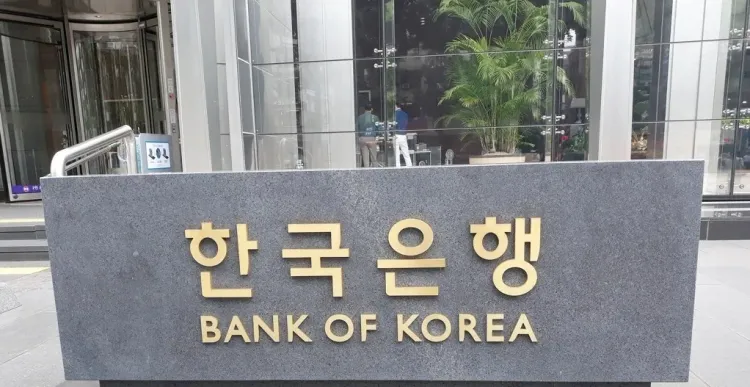How Limited Are the Economic Impacts of Interest Rate Cuts?

Synopsis
Key Takeaways
- Interest rate cuts may have limited economic impact.
- High expectations for housing prices can diminish benefits.
- Policymakers need to manage consumer expectations.
- 27% of households expect better financial conditions next year.
- 20% of households reported an income increase.
Seoul, Nov 11 (NationPress) Interest rate reductions are expected to yield only a minimal impact on economic stimulation, especially when there are elevated expectations for housing price increases, as stated by the central bank on Tuesday.
A recent report from the Bank of Korea (BOK) highlights that consumer expectations regarding home price trends indicate a persistent belief in rising housing prices, even amid signs of market decline, according to Yonhap News Agency.
When interest rates are lowered in such a context, it often leads to inflated expectations regarding housing prices, which can result in further price surges and simultaneously diminish the anticipated economic growth benefits.
Specifically, under conditions of inflated expectations, housing prices are projected to increase by approximately 56 percent more two years following a 0.25 percentage point rate cut compared to scenarios with rational expectations. Conversely, metrics like gross domestic product (GDP), investment, and consumption are expected to rise 8-10 percent less.
The report suggests that in order to counteract the adverse effects of inflated expectations, it is crucial for policymakers to adopt consistent strategies that prevent excessive beliefs in rising housing prices.
Additionally, the report emphasizes the necessity for robust macroprudential policies during periods of monetary easing to bolster economic growth, particularly when housing prices are escalating.
In a separate government survey, it was revealed that over one in four households in South Korea anticipates an improvement in their financial situation next year. Approximately 20 percent of households reported an increase in income this year.
The biennial survey conducted by the Ministry of Data and Statistics found that 27 percent of households surveyed expect better financial conditions in 2026 than in 2023, marking a 1.3 percentage point increase from two years ago. The survey targeted heads of households aged 19 and older.
Fifty-four percent of respondents expect their financial situation to remain steady, while 19.1 percent foresee a decline.
Regarding the financial outlook for 2025, 21.5 percent indicated an increase in household income compared to the previous year, while 19 percent reported a decrease. The remaining 59.5 percent stated that their income levels remained unchanged.
Additionally, 15.6 percent of households indicated that their income was significantly above the minimum monthly living expenses, reflecting a 1.9 percentage point rise from two years ago.









